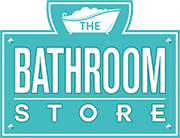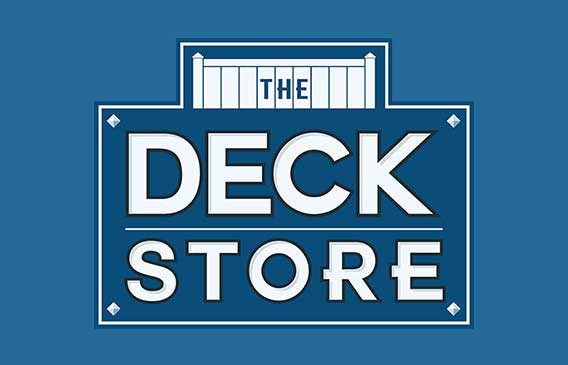Mold is a common issue in highly humid areas of your home, including bathrooms. Where there is heat and moisture, there’s a risk of mold growth. You need to deal with it immediately before it compromises your indoor air quality and, potentially, your health. One way you can address this problem is through a bathroom remodel.

Keep reading to discover which bathroom upgrades will help get rid of mold in your bathroom.
What Causes Mold Growth?
Mold can grow in several areas of your home, such as pipes, windows, roofs and anywhere there’s excessive moisture. You might find it on materials like cardboard, wood, paper and ceiling tiles. It can also spread in insulation, wallpaper, upholstery and carpet.
Present both indoors and outdoors, mold spores can infiltrate your home through your vents, windows, doors and HVAC system. The main factor that allows mold to grow is water, but this also requires the right temperature, pH level, amount of light and food source. This microorganism tends to thrive in humid and acidic environments. You’ll know there’s mold growth in your bathroom if it has a musty odor and there are dark stains on surfaces.
Leaking pipes and poor ventilation are two of the most typical causes of mold growth in the bathroom. Once widespread, mold removal can involve significant costs. Fortunately, preventing the issue before it occurs is possible through a bathroom remodel.
What Problems Can It Cause?
Some individuals are highly sensitive to mold, while others simply aren’t. Exposure to mold spores can trigger allergy and asthma attacks. People with compromised respiratory systems or underlying lung disease are more prone to fungal infections. Common symptoms associated with mold exposure are difficulty breathing, sneezing, coughing, runny nose, skin rash, headache and sore throat. Extensive exposure to mold can sometimes cause a serious condition called hypersensitivity pneumonitis. However, the exposure typically occurs in the workplace instead of the house.
If you are experiencing symptoms, make sure to speak to your doctor. Only a specialist can tell if mold is causing your allergies or asthma symptoms. You may need to get skin or blood tests to know if you have an allergy to mold. If you have a mold allergy, you may be asked to take antihistamines, allergy shots and other medications.
Maintaining healthy indoor humidity levels can reduce the likelihood of mold in your home. Run your dehumidifier to achieve a humidity level below 50%. Using a squeegee on your tub or shower walls after use can significantly reduce moisture in the bathroom.
Keeping your living spaces well ventilated is essential to mold prevention. If leaks occur in any part of your home, address them immediately. Another thing you can do to avoid mold is to invest in the right upgrades in your bath renovation.
Which Upgrades Can Eliminate Mold in Your Bathroom?
Invest in Mold-Resistant Materials
Many modern materials are now mold-resistant, making them ideal for your bathroom. You can even get paint that withstands mold growth. For your flooring, consider vinyl since it’s low-maintenance, cost-effective and resistant to water and mold. It comes in a wide selection of styles and colors to complement every bathroom style.
An Efficient Ventilation System
Every bathroom needs a proper ventilation system to prevent moisture-related issues like mold growth and rot. The steam produced from your shower or hot water in your bath can get stuck and buildup in the room. Include the installation of high-quality exhaust fans in your bath renovation to effectively eliminate excess moisture and maintain good airflow.
Improve Your Bathroom’s Lighting
Besides moisture, another thing that mold and mildew are fond of is darkness. Surfaces remain wet for longer without sunlight. If possible, add more windows to your bathroom to allow more sunshine inside. Privacy is often an issue in this room, but proper window placement can help. For instance, placing windows higher in the wall will allow more natural light without compromising your privacy. You can also use tinted, frosted or decorative glass or window treatments like curtains and blinds.
Replace Old Plumbing
Leaky plumbing is among the most common causes of mold growth in bathrooms. It’s not uncommon for mold to develop in the dark and unnoticed areas of the room, like under toilets, sinks and near plumbing. Rusting and old pipes can contribute to mold growth, and they are also more prone to leaks and bacterial growth. Investing in new hardware for your plumbing and shower installation can help you avoid mold and save on costly repair and utility bills.
Convert Your Tub to a Shower
Old bathtubs are also highly susceptible to mold growth because they have hard-to-reach areas that often remain unchecked for long periods. Turning your old tub into a shower will allow you to make the most of your bathroom space. This is a safer option for aging individuals and people with mobility issues. If you are thinking about selling your home in the future, an attractive shower can make your home more appealing to potential buyers.
Keep Your Tiles Sealed
Tiles have grout that can deteriorate over time. When grout wears out, water will have the chance to penetrate underneath the tiles, resulting in mold growth. Keeping up with tile maintenance and regular re-grouting can help you avoid this issue.
Waterproof the Room
When planning a total bathroom renovation, waterproofing its structure is something you should consider. It’s performed during the early stages of your project. The process involves installing high-quality membrane and proper plumbing and tile installation. With excellent waterproofing, mold is less likely to grow underneath the floors due to improperly installed tiles or leaking plumbing fixtures.
A dependable remodeling contractor can help you avoid moisture-related problems in your bathroom. Whether it’s sink, tub or shower installation, you can rely on The Bathroom Store. Our experienced renovation team will listen to your concerns and suggest solutions to deal with them for good. We use products from The Onyx Collection to ensure highly durable bathroom upgrades. Call us at (701) 223-1008 or fill out our online form to schedule a consultation.



